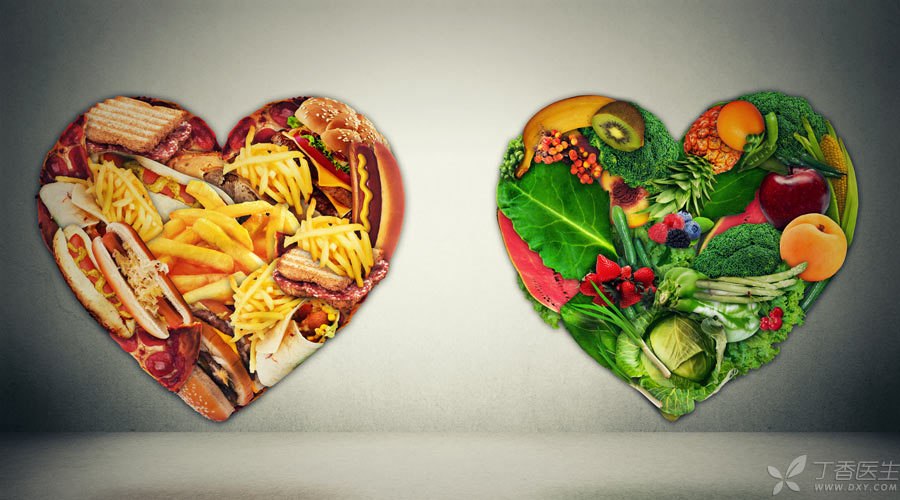
Many people evaluate themselves as eaters because they love to eat, know how to eat and eat more.
But have you ever had such experiences:
As soon as I see what I eat, I can’t help myself. I always eat?
Do you want to eat incessantly when you are not hungry?
If you don’t eat the delicious food you want to eat, you will miss it with your heart scratching your lungs?
When you suddenly don’t eat a certain kind of food, will you feel anxious?
… …
This may mean that you are a food eater or that you are addicted to food.
One, what! Is food addictive?
I didn’t think of it.
Some scientists have found when studying mice that when eating certain foods, the areas of the brain responsible for generating pleasure and reward are activated to produce strong pleasure.
These areas are also the areas of action of addictive drugs such as cocaine and heroin.
Moreover, once the brain’s pleasure is linked to the behavior of eating, it will constantly want to obtain this strong and direct pleasure by eating. However, as the number of times increases, the pleasure generated by stimulating with the same amount of food will become less and less, resulting in a stronger dependence on food and eating more and more.
Although the current research on human beings is not sufficient and there are some controversies, the phenomenon that eating certain foods makes people feel happy does exist.
Some scientists call this phenomenon of uncontrollable self-reliance on food [food addiction].
Second, what are the foods that are easy to [addict]?
Some foods can usually boost people’s appetite in the short term and make people eat more.
They are usually:
- High-sugar, high-starch foods. For example, some cakes, biscuits, chocolate, fruit juice, soda, candied fruit, glutinous rice balls, bread, etc. High-fat foods. For example, French fries, potato chips, fried chicken, cakes, egg cakes, fried dough sticks, etc. High-salt foods. For example, potato chips, bacon, instant noodles, sausages, and even pizza.
These foods usually give people obvious taste, vision and smell feelings, so it is easier for people to eat more.

Three, food [addiction] is harmful to what?
Although whether food can be addictive is still controversial, this abnormal eating habit does have great harm to health, mainly divided into two aspects.
1. Physical.
Because attractive foods are usually high in calories, the direct result is obesity. Obesity brings increased risks of hypertension, diabetes, coronary heart disease, etc. Needless to say, everyone knows that.
2. Mental.
Affect normal life. People in more serious situations will be unable to balance work and normal life because they are too busy eating, thus gradually breaking away from the original circle, leading to more serious stress and depression and entering a vicious circle.
Feel frustrated and negative. Some addict support agencies classify people who fail in their repeated attempts to stop eating too much as people who need support. Because the feeling of need to be comforted is originally one of the causes of gluttony, repeated failures may result in worse results than never trying.
Four, how to change their eating habits?
Although excessive dependence on food will be very harmful to the body, for most people, it is just a simple [love to eat] and there is no need to panic.
However, if your diet has a great negative impact on your life or even loses control, then you may need to face up to this problem.
Some studies have shown that eliminating food addiction or dependence is more complicated than getting rid of many other addiction. For example, for alcohol and caffeine, we can do absolutely no contact as control and supervision, but food addicts can’t. They still need to eat.

If you find that you may be over-dependent on food, you can improve the situation from the following aspects:
1. Change your living environment.
Familiar scenes, pictures, etc. will remind you of the days when you ate and remind you of your appetite that you should have restrained.
Therefore, we might as well try to change our working and living environment, turn off social media such as friends and microblogs, and let ourselves avoid all kinds of delicious food.
2. Change the food at hand into healthy ones.
Change the cakes and sweets, fried food and fat meat around you into fresh fruits and vegetables and lean meat, so that even if you eat too much, it is less likely to bring harm to your body.
At the same time, you will get more sense of accomplishment from the idea of “eating right”, which will make you more confident in rebuilding your eating habits.
3. Find a small partner to fight together.
In many countries, there are already relatively perfect support systems for food addicts, such as Food Addicts in Recovery Anonymous, which is similar to an alcoholism club and helps people quit food addiction through 12 stages.
4. Find professional support.
For psychological and physical problems, of course, it is more reliable to find a professional psychologist and nutritionist.
Diet is of great significance to everyone: providing nutrition, inheriting culture, enjoying life…
Real food, know how to enjoy life, can find the reasonable balance between food and health, instead of allowing yourself to eat and drink at the expense of health.
